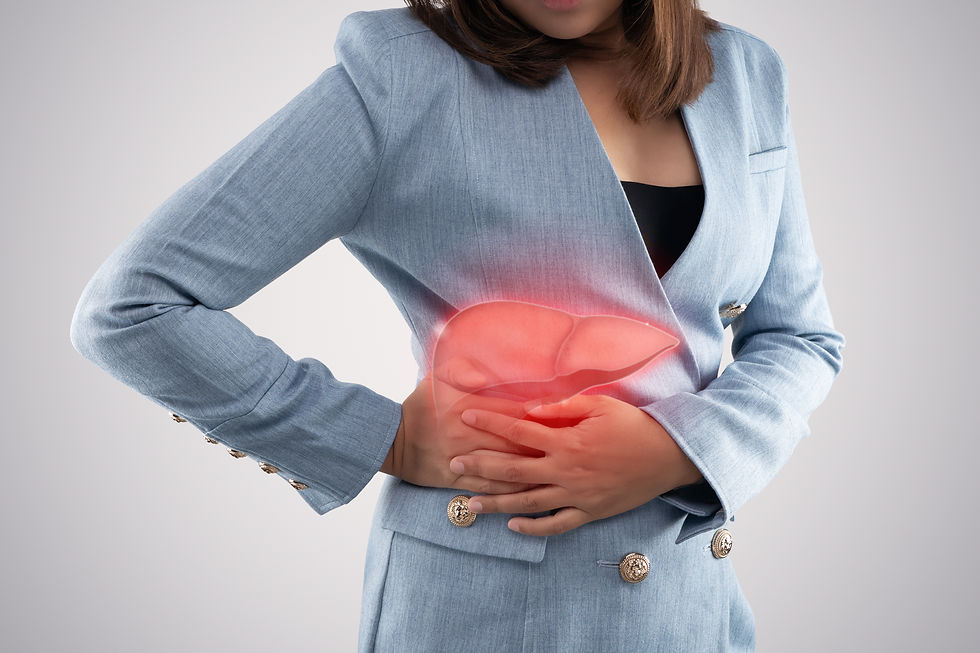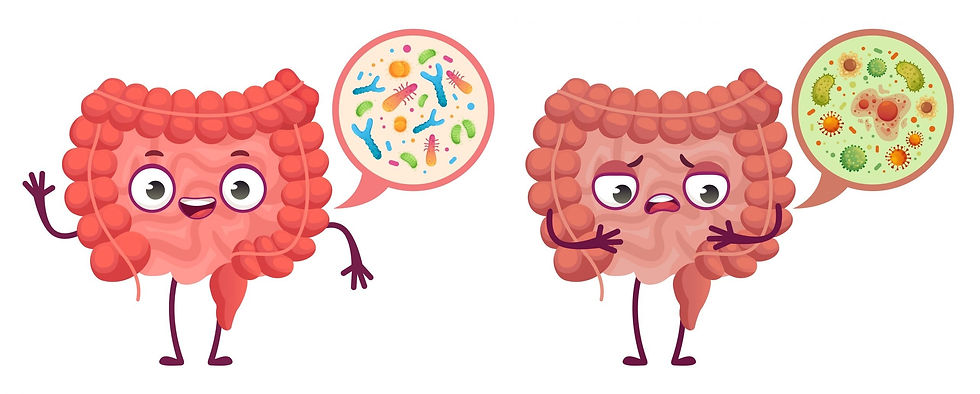Optimize Your Protein Intake for Better Gut Health
- Marnie
- Apr 24, 2025
- 3 min read
When most people think about gut health, they focus on probiotics, fiber, and fermented foods. While these are all important, one major player often gets overlooked: protein. That’s right — getting the right type and amount of protein can play a powerful role in supporting your gut lining, digestive function, immune balance, and overall well-being.
Let’s break down why protein matters for your gut — and how to optimize it.
Why Protein Is Crucial for Gut Health
Your gut lining is made up of rapidly renewing cells that rely on amino acids (the building blocks of protein) to regenerate and function properly. Without enough high-quality protein, this lining can break down, increasing the risk for leaky gut, inflammation, food sensitivities, and nutrient malabsorption.

How protein supports a healthy gut:
Maintains and repairs the intestinal lining: Amino acids like glutamine are essential for restoring the mucosal barrier that protects your body from toxins and pathogens.
Supports digestive enzyme production: Your body needs protein to create the enzymes that break down food and help you absorb nutrients more effectively.
Balances immune function: About 70% of your immune system lives in your gut. Protein fuels the production of immune cells and helps regulate inflammation.
Feeds beneficial bacteria (indirectly): While fiber is their favorite food, a healthy gut environment also depends on amino acids that help maintain the gut lining and keep good bacteria thriving.
Key Amino Acids That Support the Gut
Certain amino acids have especially powerful effects when it comes to strengthening the gut barrier and improving overall digestive health. Poor gut barrier function has been linked to a range of GI conditions like IBS, IBD, celiac disease, and more.
Here are some key players:
Glutamine – Found in abundance in meat, fish, eggs, and dairy, glutamine is the preferred fuel for enterocytes — the cells that line your intestines. These cells handle nutrient absorption and help protect your gut lining from damage.
Arginine – Present in poultry, pumpkin seeds, and legumes, arginine supports tissue repair and boosts nitric oxide production, which promotes better blood flow and healing within the gut.
Tryptophan – Known for its calming effect, tryptophan (found in turkey, dairy, nuts, and seeds) is also a precursor to serotonin — a neurotransmitter that plays a huge role in gut motility, mood, and communication between the gut and brain.
Branched-Chain Amino Acids (BCAAs) – Including leucine, isoleucine, and valine, these are found in meat, dairy, legumes, and some whole grains. BCAAs not only support muscle repair, but also help regulate the gut microbiome and reduce gut-related inflammation.
Are You Getting Enough?
Many people — especially women, older adults, and those under stress — are not eating enough protein to meet their needs. A good rule of thumb: aim for at least 30 grams of protein per meal, and 40+ grams per meal if you're active or working on gut healing.
And it is always best to spread protein intake evenly throughout the day and starting with smaller portions of well-cooked protein to support absorption.
Best Protein Sources for Gut Support
Focus on high-quality, easy-to-digest proteins that nourish the gut and support repair:
Organic, pasture-raised poultry and eggs
Grass-fed beef and lamb
Wild-caught fish (especially those high in omega-3s)
Bone broth and collagen peptides
Grass-fed protein powders can also be a great addition
Tempeh and organic tofu (if tolerated)
Cooked lentils and beans (with digestive support as needed)
Tips for Improving Protein Digestion
If you're increasing protein, but still feel bloated or sluggish after meals, you may need to support your digestion:
Chew slowly and thoroughly – digestion starts in the mouth!
Avoid eating when rushed or stressed – engage your parasympathetic “rest and digest” state.
Consume bitter foods such as arugula, dandelion greens, and ginger to help stimulate the production of stomach acid.
Support stomach acid – Betaine Hydrochloride/HCl (pronounced HCL) to increase stomach acid, which is a supplement that increases stomach acid and breaks down protein. Digestive bitters before meals can help as well.
Try digestive enzymes – especially if you’ve had your gallbladder removed or have signs of low enzyme output.
Functional Nutrition Tip 🌿
Protein isn’t just about muscles — it’s foundational for your gut, hormones, neurotransmitters, and immune health. If you’re healing your gut, managing inflammation, or trying to rebalance after a period of stress or illness, optimizing protein intake can move the needle in a big way.
Need help fine-tuning your protein intake or improving digestion? Let’s customize a plan so your meals not only nourish your body — they actually work for your gut!
#liveyourbestlife #beyourbestself #guthealth #proteinpower #functionalnutrition #inflammation #healyourgut #leakygut #protein #aminoacids #digestion #absorption #nutrients #nutrientsmatter #enzymes #stomachacid







Comments